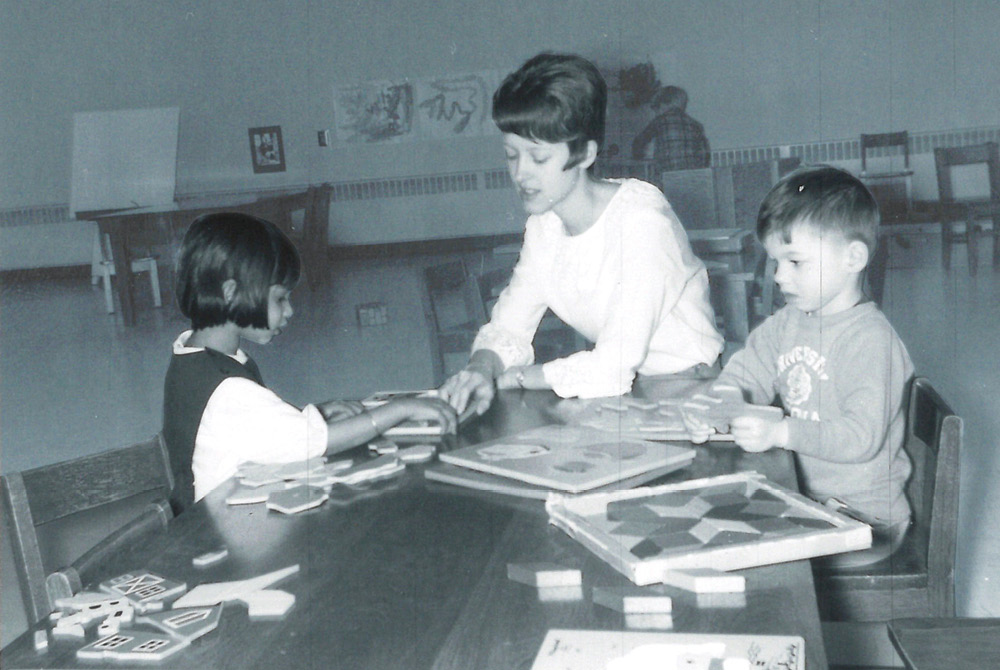Sometimes my imagination is a bird. It flies around in the blue sky, looking for some ideas. Ideas are like tiny seeds; my birds are looking for them. If the birds get them and drop them somewhere, the seeds will grow into some beautiful plants or flowers. Then they are no longer tiny ideas; they are big, beautiful ideas.
— Five-year-old Laura, in Living in the House of Imagination, forthcoming in the Reimagining Our Work Story Collection
Dear colleagues,
Greetings in this perilous time in the United States, which has such impactful reverberations around the world. We’re writing to you as comrades committed to inspire thoughtful, ethical action on behalf of children, families, educators, schools, communities. We who have been nourished and challenged and fortified by the schools in Reggio Emilia have a significant responsibility and opportunity to speak out and act up.
Too often, the historical context for the creation of the first schools in Reggio is overlooked. If ever there is a time to call that history forward, it’s now, as citizens in the US confront an authoritarian coup that is unraveling our democracy.
You know the story well, and Malaguzzi’s telling of it. You know his declaration that:
We are part of an ongoing story of men and women, ideals intact, who realize that history can be changed, and that it is changed starting with the future of children.
And you’ve heard his reflection that:
The first philosophy learned from these extraordinary events [Mussolini’s rise to power], in the wake of such a war [World War II], was to give a human, dignified, civil meaning to existence, to be able to make choices with clarity of mind and purpose, and to yearn for the future of mankind.
What choices are we called to make now, in the face of the “extraordinary events” that are taking place? What clarity and purpose can we mobilize to guide our choices? How can we join together to chart a course forward for our work?
ADVERTISEMENT
This is a time for our courage. Those of us who look to Reggio for inspiration and heart have a responsibility to speak out about why a pedagogy inspired by Reggio matters. A responsibility to spotlight the ways in which this approach cultivates curious minds and expansive imaginations—children’s and our own; grows an appreciation for questions; enhances our capacity to engage complexities beyond either/or thinking; opens us to a wider embrace of our shared humanity. Strengthens our capacity to resist authoritarianism and to creatively construct the society that we want to see flourish.
Many of us, both in the US and outside this besieged country, are building a resistance movement to the “extraordinary events” taking place in the US that are aimed at dismantling structures and spaces dedicated to progressive education, social justice teaching and learning, and the rights of children, their families, and educators to live proudly in the fullness of their identities. How might we allow ourselves to be truly inspired by Reggio, joining together to act, “ideals intact,” committed to changing history?
As we mobilize our courage, consider the forums in which we might individually or collectively take action in our communities:
- Are you a member of NAREA or a state Reggio network? Will you be attending the NAREA conference in Hamilton?
- Do you have a podcast?
- Do you teach adults?
- Are you a director or pedagogical leader of an early childhood education program?
- Are you involved in a Community of Practice? In a book group?
Consider questions that we might pose with colleagues to launch dialogue, learning, and action:
- Matt Karlsen and Susan Harris McKay, at the Studio for Playful Inquiry, ask us: What is the nature of teaching for democracy, and how might that be different than teaching for autocracy?
- Let’s ask each other: What lessons can we learn from the story of the founding of the schools in Reggio Emilia, where citizens turned to a pedagogical vision to ensure that fascism would find no toehold in the lively minds and engaged hearts of children?
- What action can we take that is worthy of the legacy of Reggio’s founding? Action to protect the immigrant and transgender children, family members, and teachers in our schools? Action to teach the true history of the US—Indigenous history, the history of resistance to enslavement and white supremacy, the history of women rising up together, the history of workers and unions, the history of disability activism? Action to resist the dismantling of the Department of Education?
- How might we come together to support each other in our boldness and determination, in our efforts to develop broad, effective strategies of collective resistance, to nurture our joy and to sustain our lives beyond fear and despair? How might we comfort and reassure each other in our tears, exhaustion, and rage? What existing organizations and undertakings might move into a coordinating role to further our thinking and connections?
This is a time for us to respond to Malaguzzi’s call to action. This is a time for each of us—and for us collectively—to join the ongoing story of people who realize that history can be changed.
Please add your name to ours and send this out to people in your networks. If there’s an arena in which you can imagine taking action or inviting dialogue, jot that down, too, as you forward this. None of us has to do everything, but there is something for each of us to do.
So much is possible when we stand strong, together.
With hope in collective resistance,
Ann Pelo and Margie Carter
Related
ADVERTISEMENT












